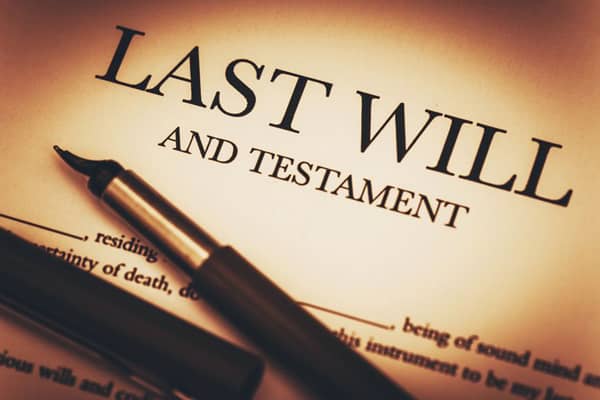4500 S. Lakeshore Dr.
Suite 342 Tempe AZ 85282
Mon - Fri 8:00 - 5:00
Saturday and Sunday closed
(480) 699-5540
Call Us Today
Suite 342 Tempe AZ 85282
Saturday and Sunday closed
Call Us Today
“Estate Plan” is a term that is used often but is usually poorly explained. As a result, many people do not understand what an estate plan is and how it can be useful for them. In its simplest terms, an estate plan is a formal set of instructions to transfer your wealth to the people and organizations of your choice when you die. An estate plan can also provide for you while you are still living but are not in a position to manage everything yourself.
An estate plan can range from simple beneficiary designations to establishing complex trusts. Strategies that work best for one family may not be the right strategies for a different family. That’s why your estate plan needs to be customized for your particular situation.


Your “Estate” is literally a collection of everything you own. Think of it like a large bucket that contains your home, cars, stocks/bonds, watches, baseball cards, diamond rings, and other jewelry. It includes life insurance policies, IRAs, 401(k) balances, and even your gun collection (if you have one). Your estate also includes your business – even if you’re the only one who works in it!
When you die there are four places where your money will go after your debts are paid:
Who would you rather give your money to? If you do nothing then your money can end up in the wrong hands.
One of the main concerns of estate planning is to determine ahead of time who your “stuff” will be given to after your passing. For married couples this is pretty straightforward. The surviving spouse automatically inherits all of the assets of the one who passed. The problem arises when the second spouse dies. Without a plan in place, the surviving family members may quarrel over who is entitled to the largest share of the remaining estate. Sadly, this situation happens more often than you might think. And the only winners in this situation are usually the lawyers that are hired to “fix” the problem created by the parents’ failure to plan ahead. It’s happened before where sizable estates have been drained of value by lawyer’s fees and endless court battles between siblings. Don’t let this happen to you!
Some people fail to provide their heirs the most basic instructions, such as a Living Will. This situation is known as “intestate”. It truly means that the person did not care about what happens to their estate after they pass. An estate that is “intestate” will end up in Probate Court. How that estate is handled in probate court depends on the size of the estate. What is Probate Court? Probate Court is a special type of court that deals with assets left by a deceased person that did not transfer automatically to the person’s intended heirs.
The court is overseen by a judge who does not know you. The judge’s responsibility is to make sure the assets are passed to the proper heirs as intended by the deceased person. If there are no instructions in place then how does the judge know who the assets should be transferred to? You can see that this can become somewhat of a guessing game and problems can happen.


A Living Will is simply a written document that gives specific instructions as to who should receive assets from your estate. It can be typed or handwritten. It can be made by you or drafted by an attorney. Whatever the case, the instructions provided are very helpful to the person in charge of the transfers. However, creating a Living Will still does not prevent your estate from going through the probate court because this document is not a means of automatic transfer.
The good news is that at least the judge has a set of instructions that he or she can follow.
Why Is Probate Court So Bad? There Are Four Main Problems With Probate Court.
1. For one thing, it is expensive. Judges and attorneys don’t work for free. Their billing rates can exceed $400/hour. Why would anyone want to give their money to judges and attorneys instead of the people they love?
2. It’s not uncommon for estates to stay in probate court for months. The end result is that a lot of money and time is wasted by having to go through the probate process.
3. Probate court proceedings are a matter of public record. That means ANYONE can see your financial details – including who will inherit your assets. The potential for danger exists when random strangers can find out who is about to receive money from your estate.
4. Family members are more likely to fight over money if clear instructions were not provided ahead of time. This happens especially with larger estates and certain people feel they are entitled to more than an equal share of your money. Lawsuits get expensive and create divisions within the family. Again, the only winners here are the lawyers.
One of the simplest ways to avoid probate court is to establish designated beneficiaries on your financial accounts. Every bank account, IRA, and investment account should have a beneficiary listed. When the account holder passes away, the financial institution will automatically transfer the account balance to the named beneficiary. These accounts avoid the probate court. There are no fees to set this up and it only takes a few minutes. In fact, most institutions require this to be done before they will even open the account. If the only assets you own are accounts at financial institutions then this may be all you need.
But families that own tangible property (houses, valuable automobiles, etc.) need a more detailed arrangement to avoid the probate process.

The Revocable Living Trust is versatile “bucket” that can hold ALL of your assets. The Revocable Living Trust is a private arrangement that can be established by anyone who wants to transfer wealth to others upon their death. This person is called the Grantor. The Grantor sets the terms of who gets what, how much, and also when. The Grantor can also change the terms while he or she is alive. That’s why it is called a Revocable Trust. The Grantor can list one or two beneficiaries or a hundred. The beneficiaries can receive equal portions of the trust assets or special percentages or fixed dollar amounts may be assigned. The Grantor can even leave certain people off of their list of beneficiaries. The Grantor has complete control over who receives the trust assets and how the distribution process happens. This level of control is what makes the Revocable Living Trust a very powerful instrument in the estate planning process.
The Grantor can make unlimited changes to the Trust while he or she is living. But upon death, the Revocable Trust becomes an Irrevocable Trust and the terms can no longer be changed. The person in charge of overseeing the assets (the “Trustee”) must follow the instructions specified in the trust document as precisely as possible.
There Are At Least Ten Powerful Features And Benefits Of The Revocable Living Trust:
You might be tempted to think that only the super wealthy need estate plans. You might also think it’s just for older people. You couldn’t be more wrong. Remember that the main purpose of the estate plan is to care for loved ones after your death. If any of these situations apply to you then an estate plan can provide a great benefit to your family:
1. Single individuals with assets exceeding $100,000
2. Married couples who own a home
3. Families with young children at home
4. Families with special needs children that will need ongoing care
5. Business owners who want the business to continue after their death
6. Individuals and couples who want to donate to special causes or organizations
7. Caring for pets after you have passed (this is a real thing!)
8. Couples who are not married but want to provide for each other after death
9. Families who want to prevent children from fighting over assets
10. Families with children who are terrible at managing their own finances
If your family’s net worth exceeds $10 Million then you probably need more extensive plans to protect your wealth and to reduce or eliminate estate taxes. We are comfortable consulting with you about more complex structures such as:
We are not licensed to draft legal documents for our clients. However, we are able to generally explain the features and benefits of various estate planning strategies (including trusts). Then we can refer you to a trusted estate planning attorney who can customize your estate plan according to the objectives you have for your wealth. Using a professional for such a critical piece of your financial well-being is highly recommended to make sure it is done correctly and according to current laws and tax rules regarding estate planning.
Getting started is easy. The first step is to let us know how we can help you. Just fill out the simple contact form below and we will be in touch with you right away – or just call us at 480-699-5540.

Larson Wealth Management is an independent Registered Investment Advisor (RIA).